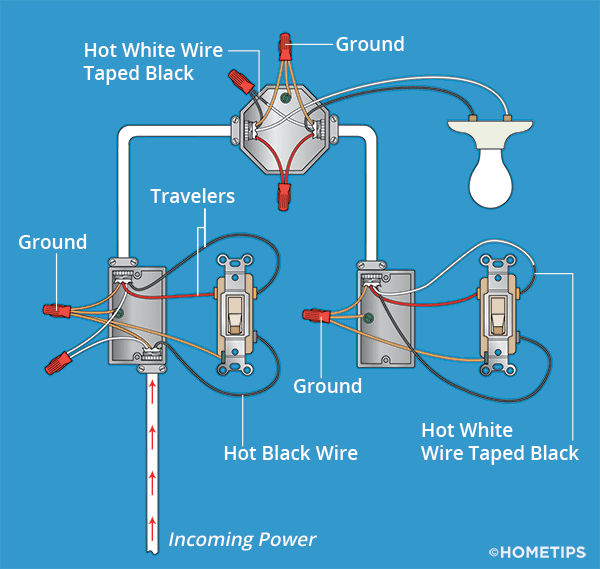Understanding how to wire a Three Way Four Way Switch Wiring Diagram is crucial for anyone working with electrical systems. These diagrams provide a visual representation of how the switches are connected in a circuit, allowing for proper installation and troubleshooting.
Why Three Way Four Way Switch Wiring Diagrams are essential
Three way and four way switches are commonly used in homes and buildings to control lighting from multiple locations. The wiring diagrams for these switches help electricians and DIY enthusiasts ensure that the switches are connected correctly, preventing electrical issues and ensuring the smooth operation of the lighting system.
1. Clear understanding of switch connections
- Helps identify the terminals on each switch
- Shows the path of electrical current flow
- Clarifies the connections between switches
2. Troubleshooting electrical problems
- Aids in identifying faulty wiring connections
- Assists in diagnosing switch malfunctions
- Facilitates the correction of wiring errors
How to read and interpret Three Way Four Way Switch Wiring Diagrams effectively
Reading wiring diagrams can seem daunting at first, but with a little practice, anyone can master the skill. Here are some tips to help you interpret these diagrams effectively:
1. Identify the symbols
- Switches are represented by specific symbols
- Lines indicate the connections between switches
- Labels provide information about the wires and connections
2. Follow the flow of current
- Start at the power source and follow the path of current through the switches
- Understand how the switches control the flow of electricity
- Check for any breaks or interruptions in the circuit
Using Three Way Four Way Switch Wiring Diagrams for troubleshooting
When faced with electrical problems, a wiring diagram can be a valuable tool for troubleshooting. By following the diagram, you can quickly identify the source of the issue and make the necessary repairs. Here’s how you can use these diagrams effectively:
1. Identify the problem area
- Look for any loose connections or damaged wires
- Check for any switches that are not functioning properly
- Use a multimeter to test the continuity of the circuit
2. Compare the diagram to the actual wiring
- Ensure that the connections match the diagram exactly
- Look for any discrepancies or errors in the wiring
- Make the necessary adjustments to correct the issue
Remember, safety should always be a top priority when working with electrical systems. Here are some safety tips and best practices to keep in mind:
- Always turn off the power before working on any electrical circuit
- Use insulated tools to prevent electrical shocks
- Double-check your connections before restoring power to the circuit
Three Way Four Way Switch Wiring Diagram
How To Wire Three Way And Four Way Switches – Lena Wireworks

How To Wire Three-Way Light Switches | HomeTips

4 Way Switch Wiring Series

A Guide To 3-Way Switch Wiring Diagram With Outlet – Wiring Diagram

4 way Switch Wiring Guide: Showing All Wire Diagrams

Basic 4-Way Switch Wiring : Electrical Online
